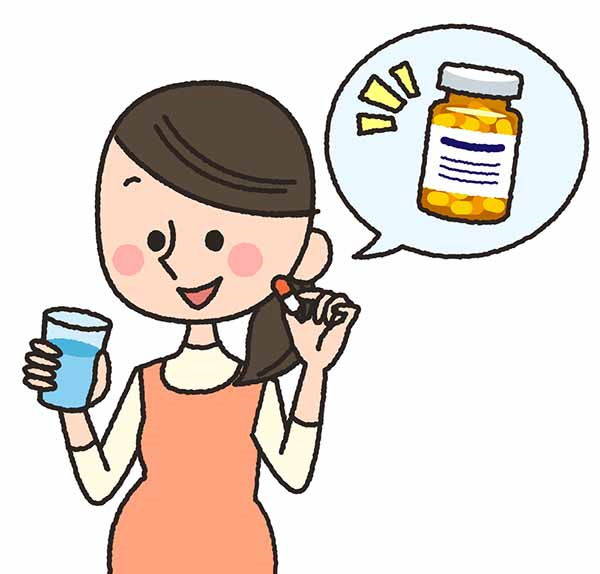Cardioaspirin is a medicine whose active ingredient is acetylsalicylic acid, generally indicated in the prevention and treatment of blood clots. Let's see all the side effects.
Don't store avocado like this: it's dangerousLa Cardioaspirin is a medicine whose active ingredient isacetylsalicylic acid, present to a much lower extent than the classic Aspirin, from which it also differs for final destination. date him anticoagulant properties, Cardioaspirin is, in fact, generally indicated in the prevention and treatment of thrombi (clots in the bloodstream). But what are the side effects of cardioaspirin? And yours contraindications?
It's about anticoagulant associated with the category of life-saving drugs, for which it is prescribed to always maintain optimal blood fluidity. Before taking it, it is obvious that you must seek the advice of your doctor, to whom you will also have to expose all your possible problems of a gastric and hepatic nature or affecting the heart and cardiovascular system, and any previous pathologies.
Index
What is Cardioaspirin
It is an anticoagulant drug whose principle is theacetylsalicylic acid, present to the extent of 100 mg per tablet, unlike the 500 mg found in aspirin.
Usually, it is used after a myocardial infarction for preventive purposes to reduce the incidence of coronary thrombosis in high-risk patients and in prevention of thrombotic events determined by extracorporeal circulation.
In addition, it can generally be assigned to people suffering from:
- hypertension
- angina pectoris, which is characterized by chest pain caused by insufficient oxygenation of the heart muscle due to a momentary decrease in blood flow through the coronary arteries
- hypercholesterolemia
- obesity
- diabetes mellitus
- familiarity with heart disease
Furthermore, Cardioaspirin is also useful in the prevention of ischemic events after a cerebral stroke, in the re-occlusion of aorto-coronary bypasses and after an angioplasty.
Some studies have also shown that those who take cardioaspirin regularly see a 34% reduction in the risk of getting cancer.
The dosage that is most prescribed is that of one tablet a day, at the end of a meal and with a nice glass of water. But a careful evaluation and therapy must always be exclusively agreed with your doctor.
Cardioaspirin interactions
Acetylsalicylic acid has a therapeutic action that could be altered if you concomitantly take:
- antihypertensives
- anticoagulants
- non-steroidal anti-inflammatory drugs
- immunosuppressive drugs
- pain relievers such as ibuprofen
- antigout drugs
- anticancer drugs

On the other hand, with cardioaspirin, it could be distort the effectiveness of anticoagulants, corticosteroids, methotrexate, analgesics, hypoglycemic agents, furosemide and spironolactone, increasing the incidence of side effects.
Cardioaspirin side effects and contraindications
As for the side effects and any contraindications in taking Cardioaspirin, it is obvious that all must be evaluated case by case and individually.
Generally, the first contraindication is that relating to one hypersensitivity to acetylsalicylic acid, salicylates and its excipients.
Also, cardioaspirin may have contraindications for whom:
- suffer from kidney failure
- suffer from liver failure
- he had one mastocytosis (blood cancer), as the reaction with acetylsalicylic acid can trigger effects such as hypotension, vomiting, tachycardia and hot flashes.
Furthermore, cardioaspirin is not indicated if there are any ongoing viral diseases in children, because those could potentiate the toxic effects of various toxins, resulting in Reye's syndrome.
The side effects commonly associated with the use of cardioaspirin are:
- gastrointestinal disorders
- nausea and vomiting (vomiting of blood may also be possible)
- dyspepsia
- abdominal pain
- gastric ulcer
- duodenal ulcer or melaena (black stools)
- inflammation of the first intestinal tract
In more severe severe cases, side effects could also occur with intestinal perforations, esophageal ulcers, colitis, ulcers of the colon, rectum and ileum, erosive gastritis, esophagitis.
READ also:
- GASTRITIS: CAUSES, SYMPTOMS, REMEDIES AND EVERYTHING TO KNOW
- ULCER: 10 NATURAL REMEDIES AND FOODS TO PROTECT THE STOMACH
- HELICOBACTER PYLORI: CAUSES, CONTAGION, SYMPTOMS AND DIET TO FOLLOW
- THROMBOSIS: SYMPTOMS, CAUSES, HOW TO RECOGNIZE AND TREAT IT
- PHLEBITIS: SYMPTOMS, CAUSES, REMEDIES AND HOW TO RECOGNIZE VENOUS THROMBOSIS (PHOTO)
Cardioaspirin in pregnancy

Cardioaspirin during gestation can be used, but always under the watchful eye of your doctor and with the necessary analyzes.
However, this drug will not be recommended in the 3rd month of pregnancy, but should always be used very carefully.
If you are pregnant, your doctor may prescribe Cardioaspirin if:
- it is necessary to prevent atherothrombotic disorders
- if you have suffered a heart attack or stroke
- if you suffer from angina pectoris
- if you want to prevent cardiovascular events in women considered at risk
Le contraindications ascertained in pregnancy concern any intolerances to salicylates, any ulcers or even gastrointestinal bleeding in the story of the pregnant woman. But there is also contraindication in case of concomitant intake of other anticoagulant drugs, in the presence of any renal or cardiovascular disorders, liver disorders, hay fever, polyps in the nose, a low level of glucose 6 phosphate dehydrogenase , concomitant therapy with ibuprofen-based drugs and asthma episodes.
Germana Carillo


























